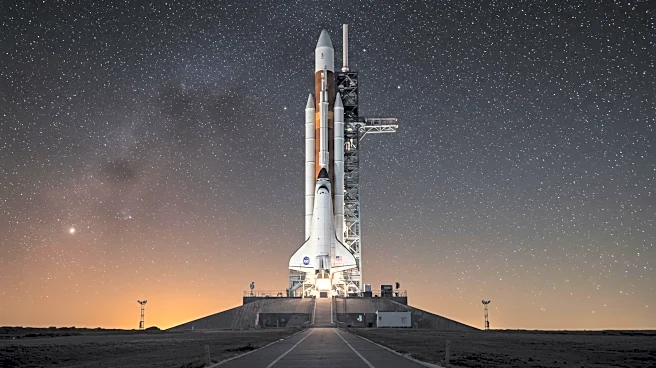What's Happening?
Blue Origin is preparing for the second launch of its New Glenn rocket, scheduled for September 29, which will carry NASA's ESCAPADE mission to Mars. The mission involves twin probes designed to study Mars' magnetosphere and atmospheric interactions with solar wind particles. Originally planned for January, the launch was delayed to avoid risks associated with the rocket's debut. Blue Origin aims to successfully land the rocket's first stage on a drone ship in the Atlantic Ocean. The mission marks New Glenn's first interplanetary venture, with additional payloads from Viasat supporting NASA's Communications Services Project.
Why It's Important?
The successful launch of the New Glenn rocket carrying NASA's ESCAPADE mission represents a significant milestone for Blue Origin and the broader space industry. It highlights the growing collaboration between private companies and NASA in advancing space exploration. The mission's focus on Mars' magnetosphere could provide critical data for future interplanetary missions and enhance our understanding of the Red Planet. Blue Origin's efforts to recover the rocket's first stage demonstrate the company's commitment to developing reusable launch systems, which could reduce costs and increase the frequency of space missions.
What's Next?
Following the launch, the twin ESCAPADE probes will be managed by the University of California's Space Sciences Laboratory, which will oversee the $80 million mission. Blue Origin will continue to refine its rocket recovery techniques, aiming for successful landings to improve reusability. The collaboration with Viasat on the Communications Services Project will advance in-space networking capabilities, potentially benefiting future satellite operations. As Blue Origin and NASA pursue further interplanetary missions, ongoing developments in rocket technology and scientific research will shape the future of space exploration.









